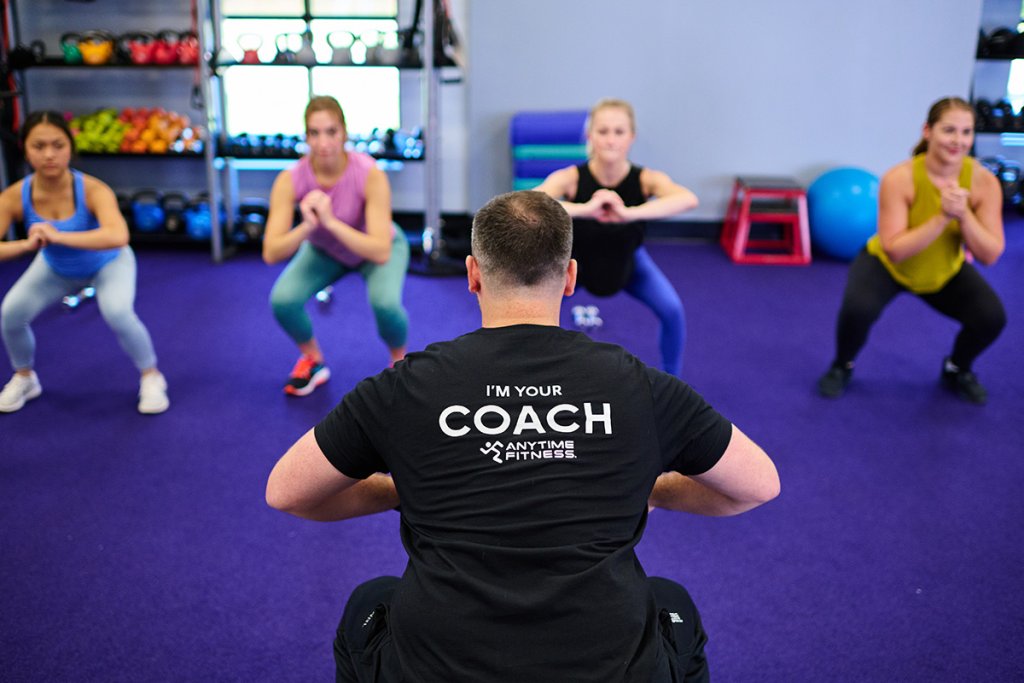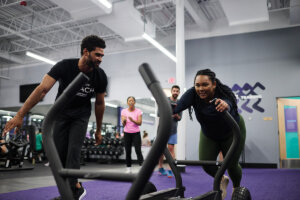In the world of health and fitness, the roles of a fitness coach and a personal trainer are often viewed through the same lens. However, there are crucial distinctions that can shape your fitness ventures and redefine your vision of a healthier, stronger you.
Let’s dig into the differences between a fitness coach versus a personal trainer so you can decide which is the best fit for you, your goals, and your lifestyle.
The difference between a fitness coach and a personal trainer
The goal of a personal trainer is to help you achieve a specific goal via exercise. That could be weight loss, muscle mass growth, and so on. The role of a fitness coach is to do the same thing — while also helping you understand how to set personal and realistic goals, improve your self-efficacy, and assess your progress over time.
Let’s break down those differences between fitness coach and personal trainer even further.
What is a fitness coach?
Imagine a fitness coach as a compass along your fitness journey. A fitness coach goes beyond a physical workout plan, creating a personalized wellness plan that integrates physical, mental, nutritional, and recovery facets of your well-being. A fitness coach is dedicated to understanding your lifestyle, history, and aspirations, tailoring a plan that’s not just about building a body, but also building a healthy, sustainable lifestyle.
A fitness coach is often also a certified personal trainer. Therefore, a fitness coach can be seen as an expanded personal trainer that also helps guide their clients’ lifestyle habits outside of the gym.
What does a fitness coach do?
Fitness coaches do much of the same work that personal trainers do, including assessing their clients and designing exercises to meet specific goals. A fitness coach also takes time to learn about their clients’ lifestyles outside of the gym, and as appropriate, provides coaching to help transform unhealthy habits into healthy habits.
Fitness coaches may use behavioral coaching techniques to help their clients adhere to an exercise program and often also provide coaching on nutrition, recovery, and other areas, such as controlling stress or managing time better.
Fitness coaches have a goal of helping you eventually learn to self-regulate healthy lifestyle habits and routines through:
- Goal-setting
- Intentional planning
- Tracking progress
- Self-efficacy
1. Fitness coaches help you learn how to set goals
Coaches will help make sure your goals are specific, measurable, attainable, realistic and timely — aka, SMART goals. This is important because oftentimes, people come to the gym with goals that might be unrealistic or unattainable within the desired timeframe. A fitness coach can help reframe those goals in a way that makes them safe and realistic. Some variables they’ll consider are:
- Current fitness level of the client
- Injury or other body limitations
- Desired number of workouts per week
- Whether or not nutritional needs are being met
Outcome goals vs. process goals
Coaches should encourage you to set process goals in addition to outcome goals, because process goals are more controllable. Not sure what we mean? Here are a couple of examples:
- Outcome goal: “I want to lose 10 pounds.”
- Process goal: “I will meet with my coach 3 times per week and log my meals 6 days per week for 1 month.”
Process goals often lead to outcome goals because they include strategies that relate directly to results.
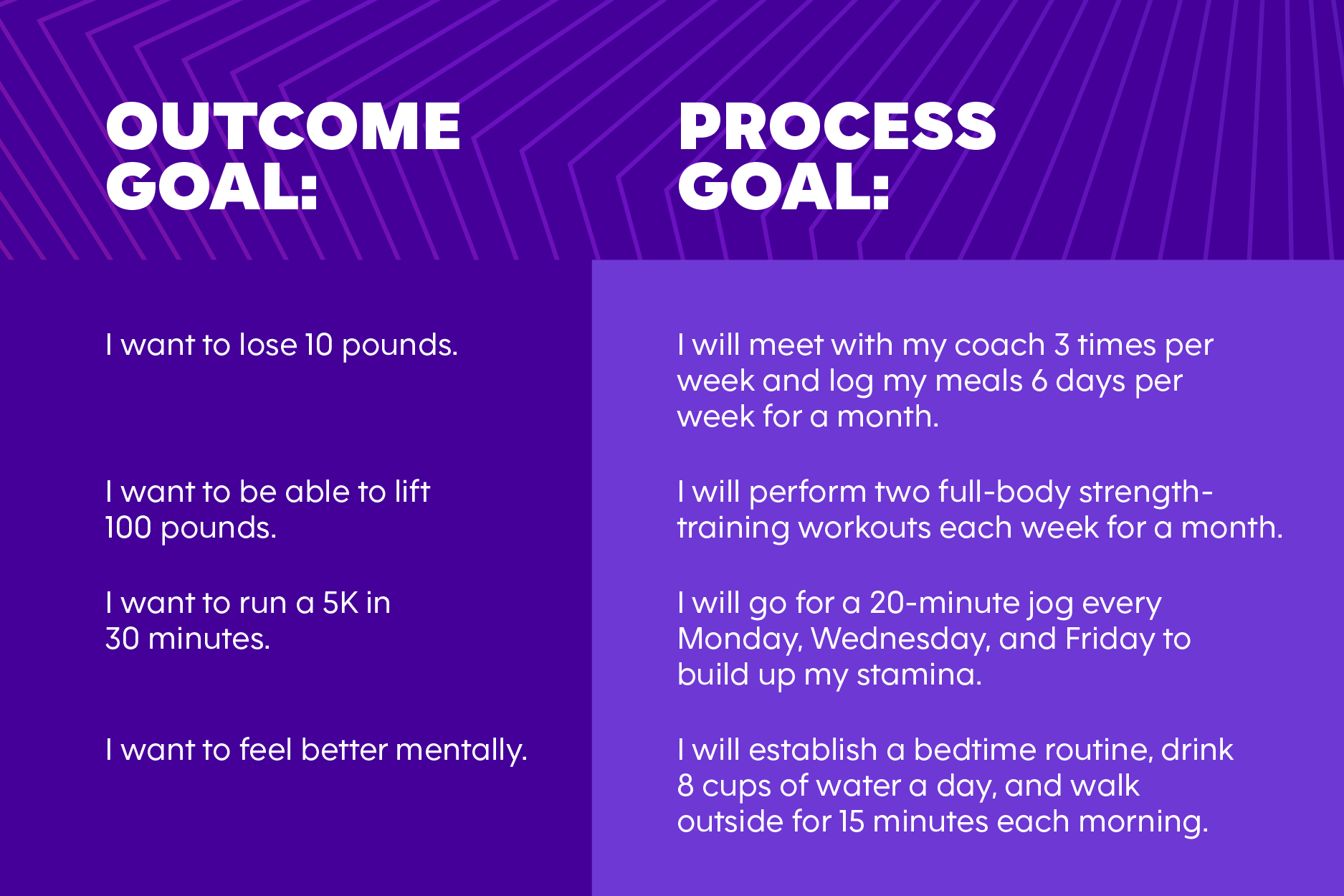
2. Fitness coaches can help you plan your journey.
Based on what your intentions and goals are, a coach can give recommendations on workout specifics like type, frequency, duration, intensity, and so on. A coach can also help you figure out how to make space in your life for those workouts.
As roadblocks arise (take it from us, roadblocks or plateaus happen to everyone) a coach can provide support and direction to get you back on track.
3. A fitness coach can teach you how to self-monitor progress
A fitness coach will help you learn more about yourself and become self-reflective. A coach will show you how to stay accountable to yourself and your goals by teaching you how to record your progress and track your behaviors, paying attention to incremental gains toward your overall goals.
4. Fitness coaches help you build self-efficacy
Self-efficacy is the confidence in oneself to complete a specific task or goal. Coaches seek to improve your self-efficacy through support and feedback, recognizing when you’ve followed through on your process goals. They’ll also help you unlock new achievements as you go. Over time, this can lead to more confidence — both in the gym and outside of it.
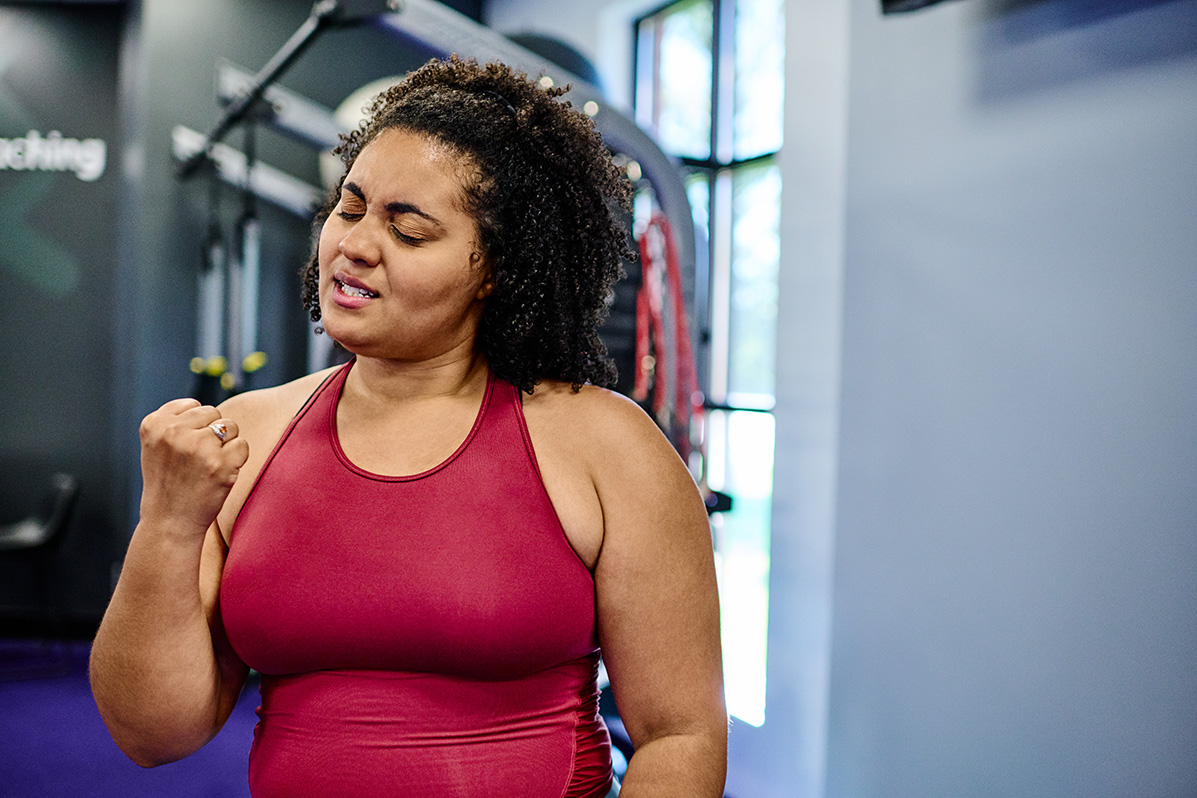
What is a personal trainer?
A certified personal trainer has specific knowledge of fitness and exercise science and has passed a certification exam offered by a national certifying organization. Their main role is to assess clients’ needs, health history, and movement patterns to help them safely and effectively exercise to meet their goals.
What does a personal trainer do?
Personal trainers typically zero in on exercise form, intensity, rest intervals, and progression in a manner that’s methodical, scientific, and directed. They craft and oversee a workout plan designed to achieve specific physical objectives. Personal trainers are more task-oriented, working with you to improve strength, flexibility, endurance, or performance in targeted fitness areas.
Personal trainers meet individually with clients to work on their exercise program. This includes movement assessments. This helps the trainer choose appropriate exercises for each client based on their strengths and weaknesses, body posture and potential muscle imbalances, and body composition. After assessing the client, the trainer will then design a workout program that is safe and effective for the client’s needs and deliver that instruction during a personal training session.
Ok, so what is a fitness instructor?
The main difference between a personal trainer or fitness coach and a fitness instructor (or gym instructor) is that a fitness instructor typically delivers their training services to clients in a group setting, rather than one-on-one. Instructors are in gyms to help members by offering tips or advice. They also might:
- Give new members a tour of the gym
- Show members how to use gym machines
- Lead group exercise classes like indoor cycling, aerobics, yoga, dance, and so on
- Replace towels and help keep the gym clean and hygienic overall
How to find a fitness coach or personal trainer
There are a few things to consider when looking for a fitness coach or personal trainer:
- Compatibility in coaching style and personal connection
- Credentials and certifications
- Experience in or knowledge of varied workout formats (strength training, group training classes, functional training, running, etc.)
Make sure to discuss your fitness goals and expectations before committing to a training program.
How much does a fitness coach or personal trainer cost?
The cost of a fitness coach can vary greatly based on certifications, experience, and services provided. Coaching is often packaged as a monthly or weekly service and can start at around $100 per month.
Personal training is often billed on a per-session basis. Like fitness coaching, the cost varies based on certifications, experience, and services provided. One can expect to pay between $1 and $3 per minute for personal training.
Fitness coach vs. personal trainer: Which is right for you?
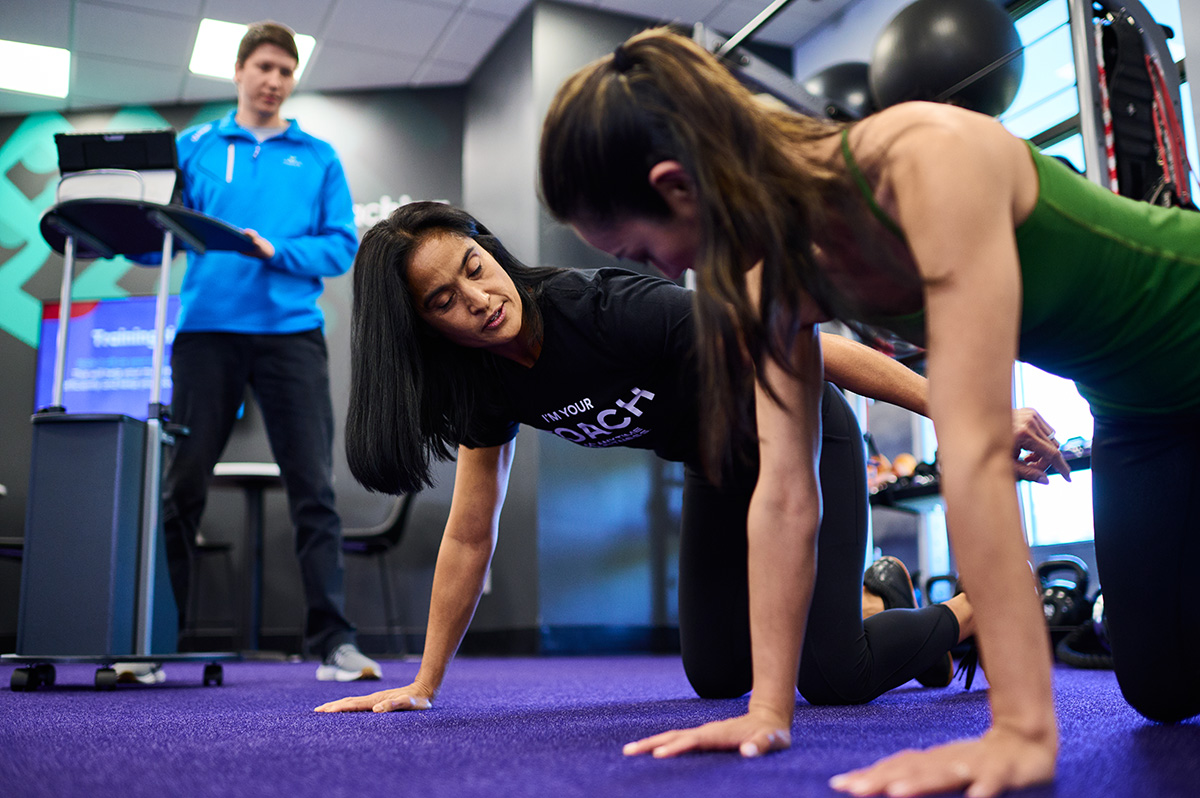
While both professionals have their specialized niches, there are certainly differences between a fitness coach versus personal trainer. In today’s fast-paced world, it’s becoming increasingly common to opt for coaching that provides support both in and out of the gym.
Choose what resonates with you, but most importantly, remember that investing in a trainer or coach is an investment in your well-being. Learning how to make exercise a part of your lifestyle can help you look and feel good in ways that are sustaining and fulfilling.
Whether you’re new to exercising or ready to change up your fitness routine, Anytime Fitness is here to provide you with personalized coaching and support inside and outside the gym. A new membership includes a FREE 1-hour session with an AF Coach to get you started on the right foot.
